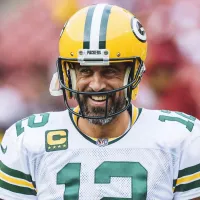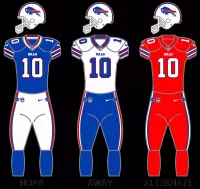Joe Montana, nicknamed "Joe Cool" and "the Comeback Kid," is widely considered one of the greatest NFL quarterbacks of all time. He led the San Francisco 49ers to four Super Bowl victories, earning three Super Bowl MVP awards. He holds Super Bowl records for most passes without an interception and the highest passer rating. Montana began his NFL career in 1979 with the 49ers after winning a national championship with Notre Dame. After 14 seasons with the 49ers, he was traded to the Kansas City Chiefs, leading them to their first AFC Championship Game appearance. He was inducted into the Pro Football Hall of Fame in 2000.
June 11, 1956: Birth of Joe Montana
On June 11, 1956, Joseph Clifford Montana Jr., the future NFL star quarterback, was born.
1966: Notre Dame Wins NCAA National Championship
In 1966, during Ara Parseghian's tenure, Notre Dame won the NCAA national championship, contributing to his success in recruiting talented players.
1972: Dolphins Finished With No Losses
In 1972, the Miami Dolphins finished the NFL season with no losses, with the season only comprised of 14 games.
1973: WPIAL Class AAA Boys' Basketball Championship
In 1973, Joe Montana helped Ringgold High School win the WPIAL Class AAA boys' basketball championship, showcasing his athletic versatility.
1973: Notre Dame Wins NCAA National Championship
In 1973, during Ara Parseghian's tenure, Notre Dame won the NCAA national championship.
December 15, 1974: Ara Parseghian Resigns
On December 15, 1974, Ara Parseghian resigned from his position as Notre Dame's football coach due to health problems, leading to Dan Devine's hiring.
1974: Marriage to Kim Moses
In 1974, Joe Montana married his hometown sweetheart, Kim Moses, during his second semester at Notre Dame.
1974: Montana Arrives at Notre Dame
In the fall of 1974, Joe Montana arrived at Notre Dame, where the football program was coached by Ara Parseghian.
1975: Impressing Dan Devine During Spring Practice
During the 1975 spring practice, Joe Montana performed well, impressing coach Dan Devine, who foresaw Montana's potential.
1975: Key Role in Notre Dame's Victory Over North Carolina
In 1975, Joe Montana played a key role in Notre Dame's victory over North Carolina, contributing 129 passing yards in just over a minute of game time.
1976: Shoulder Separation and Medical Redshirt
In 1976, Joe Montana separated his shoulder and was granted a medical redshirt waiver, giving him an extra year of eligibility.
1977: Montana's Position on the Depth Chart
In 1977, Joe Montana was initially the third quarterback on the depth chart, but an injury to Gary Forystek opened up an opportunity.
1978: Come-From-Behind Win Against Pitt Panthers
As a fifth-year senior in 1978, Joe Montana led Notre Dame to a come-from-behind win against the Pitt Panthers, showcasing his ability to perform under pressure.
January 1, 1979: "The Chicken Soup Game" at the Cotton Bowl
On January 1, 1979, Joe Montana led Notre Dame to a memorable come-from-behind victory against Houston in the Cotton Bowl, known as "The Chicken Soup Game," overcoming hypothermia to lead the team to a 35-34 win. He was fed chicken soup in the locker room.
1979: Appears in All 16 Games
In 1979, Joe Montana appeared in all 16 regular-season games, primarily as a backup to Steve DeBerg.
1979: Montana Begins His NFL Career
In 1979, Joe Montana started his NFL career with the San Francisco 49ers after being drafted.
1979: NFL Scouts Evaluate Potential Draftees
In 1979, NFL scouts evaluated potential draftees through combines, assessing candidates in various categories to determine their draft potential. Joe Montana also underwent this process.
1979: Drafted by the San Francisco 49ers
In the 1979 NFL draft, the San Francisco 49ers selected Joe Montana at the end of the third round as the 82nd overall pick.
December 7, 1980: First Fourth Quarter Comeback Victory
On December 7, 1980, Joe Montana led his first fourth-quarter comeback victory against the New Orleans Saints, marking the beginning of his reputation as "The Comeback Kid."
1980: Montana Leads the League in Completion Percentage
In 1980, despite the 49ers finishing with a 6-10 record, Joe Montana led the league with a 64.5 percent pass completion rate, passing for 1,795 yards and 15 touchdowns.
1980: Becomes Starting Quarterback
Midway through the 1980 season, Joe Montana became the starting quarterback for the San Francisco 49ers.
1981: Montana Becomes Starting Quarterback
In 1981, Joe Montana started as San Francisco's quarterback. Backed by Montana's performance, the team finished the regular season with a 13-3 record. Montana helped San Francisco win two of those games with fourth-quarter comebacks.
January 10, 1982: "The Catch" and NFC Championship Win
On January 10, 1982, Joe Montana led the San Francisco 49ers to a 28-27 victory over the Dallas Cowboys in the NFC Championship Game, highlighted by "The Catch" – a game-tying touchdown pass to Dwight Clark with 51 seconds left.
1982: Prolific Season and Trade Considerations
During the shortened 1982 season, Joe Montana had a prolific season, throwing for 2,613 yards and 17 touchdowns, setting an NFL record with five consecutive 300-yard passing games, though the 49ers missed the playoffs with a 3-6 record.
1982: NFL Combine was formed
The NFL combine was formed in 1982.
1983: Montana Throws for 3,910 Yards
In 1983, Joe Montana threw for 3,910 yards and 26 touchdowns. With 1:23 remaining, Montana completed a touchdown pass to wide receiver Freddie Solomon, giving San Francisco the 24–23 lead on the ensuing extra-point.
1984: 49ers Finish with a 15-1 Record
When the 49ers finished the 1984 NFL season with a 15–1 record, they became the first team to win 15 games in a single regular season.
1985: Marriage to Jennifer Wallace
In 1985, Joe Montana married Jennifer Wallace, an actress and model, after they met while working on a Schick commercial.
1985: Lost in NFC Wild Card Game
In 1985, the 49ers, aided by Joe Montana's performance at quarterback, advanced to the NFL Playoffs, but lost in the NFC Wild card game to the New York Giants 17–3.
September 15, 1986: Montana Placed on Injured Reserve
On September 15, 1986, due to a severe back injury sustained in week one, the 49ers placed Joe Montana on the injured reserve list.
1986: NFL Comeback Player of the Year Award
In 1986, Joe Montana was honored with the NFL Comeback Player of the Year Award after recovering from a severe back injury.
1989: Named NFL Most Valuable Player
In 1989, Joe Montana was named the NFL Most Valuable Player, recognizing his outstanding performance that year.
1990: Named NFL Most Valuable Player
In 1990, Joe Montana was once again named the NFL Most Valuable Player, marking consecutive years of exceptional play.
April 20, 1993: Montana traded to the Kansas City Chiefs
On April 20, 1993, Joe Montana was traded to the Kansas City Chiefs for the Chiefs' first-round draft pick in the 1993 NFL draft and signed a $10 million contract for three years.
1993: Montana Traded to the Kansas City Chiefs
In 1993, Joe Montana was traded to the Kansas City Chiefs, marking a new chapter in his career.
1994: Named to NFL 75th Anniversary All-Time Team
In 1994, Joe Montana was honored with a spot on the NFL 75th Anniversary All-Time Team, recognizing his contributions to the sport.
April 18, 1995: Montana announces his retirement
On April 18, 1995, Joe Montana announced his retirement at Justin Herman Plaza in San Francisco, an event broadcast live on local television, featuring speeches and highlights from his career.
2006: Ringgold High School Renames Football Stadium
In 2006, Ringgold High School renamed their football stadium "Joe Montana Stadium" in honor of Joe Montana, 32 years after his graduation.
2006: Rated Number-One Clutch Quarterback of All Time
In 2006, Sports Illustrated rated Joe Montana as the number-one clutch quarterback of all time, highlighting his performance under pressure.
2015: Montana co-founds Liquid 2 Ventures
In 2015, Joe Montana co-founded Liquid 2 Ventures, a venture capital firm which he currently manages.
Mentioned in this timeline

Basketball is a team sport played on a rectangular court...

Tom Brady is a retired American football quarterback renowned as...
The Kansas City Chiefs are a professional American football team...
Sports Illustrated SI is an American sports magazine launched in...

Aaron Rodgers is a professional American football quarterback currently playing...

The Buffalo Bills are an NFL team representing the Buffalo...
Trending

1 hour ago Maya Hawke and Christian Lee Hutson celebrated wedding with Stranger Things cast present.
1 hour ago Wizz Air Launches New Larnaka-Barcelona Flights, Boosting Tourism for Cyprus and Spain.

1 hour ago Jon Ossoff criticizes Trump, speech goes viral, fueling 2028 'Front Runner' speculation.
3 hours ago ANTM's controversies are revealed in a new Netflix documentary, with Tyra Banks facing criticism.
3 hours ago EU monitors Albania's legal changes: Concerns raised over Rama's SPAK amendment.
4 hours ago Arkansas State Police sees 29% drop in high-speed pursuits due to law changes.
Popular

Jesse Jackson is an American civil rights activist politician and...
Randall Adam Fine is an American politician a Republican who...

Pam Bondi is an American attorney lobbyist and politician currently...

Barack Obama the th U S President - was the...

Martin Luther King Jr was a pivotal leader in the...

Ken Paxton is an American politician and lawyer serving as...
